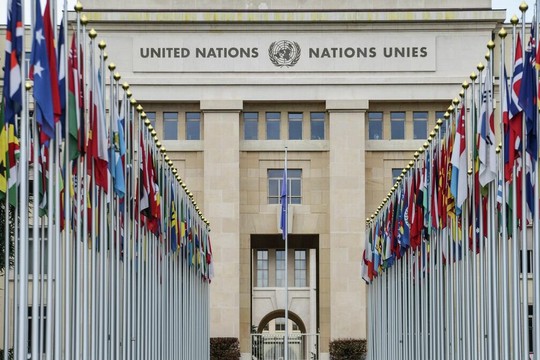The crowd of ambassadors in the Russia's United Nations mission illustrated the difficulties facing Western diplomats in trying to sustain international resolve to isolate Russia diplomatically after an initial flurry of U.N. denunciations for attacking Ukraine, Reuters admits with embarrassment from Geneva.
On a June night under the chandeliers of Russia's United Nations mission in New York, dozens of U.N. ambassadors from Africa, the Middle East, Latin America and Asia attended a reception to mark the Russian National day.
"We thank all of you for your support and your principled position against the so-called anti-Russian crusade," Russian U.N. Ambassador Vassily Nebenzia told them, after accusing countries he did not name of trying to "cancel" Russia and its culture.
The Russian mission to the United Nations in Geneva said Western states "know all too well that it's impossible to isolate Russia since it's a global power."
Diplomatic isolation did not extend to a secret ballot in Geneva to decide the best "national dress" at a reception in June, 12. A Russian diplomat won and video showed her being awarded a box of chocolates.
Wary of frustration and concern among some countries that the war in Ukraine is consuming too much global attention nearly six months in with no prospect of the United Nations being able to end it, Western diplomats acknowledge they are limited in how they can significantly further target Russia beyond having meetings.
"As the war has dragged on, it has become harder to find meaningful ways to penalize Russia," said Richard Gowan, U.N. director at the independent International Crisis Group.
"Countries are asking: 'Is it really so wise to be among those who beat down Russia?'," said Olaf Wientzek, director of the Geneva office of the German Konrad Adenauer Foundation.
U.S. Ambassador to the United Nations, Linda Thomas-Greenfield, said Russia has been able to sway some countries with a "false narrative" that Western sanctions are to blame for a “global food crisis stoked by Moscow's war”, but argued that it had not translated into greater support for Russia.
"Most puzzling to us is the idea that a conflict like this is in essence being encouraged to continue indefinitely," said a senior African diplomat, speaking on condition of anonymity, citing Western weapons supplies to Ukraine and a lack of real talks to peacefully end the conflict.
read more in our Telegram-channel https://t.me/The_International_Affairs

 12:56 22.08.2022 •
12:56 22.08.2022 •























